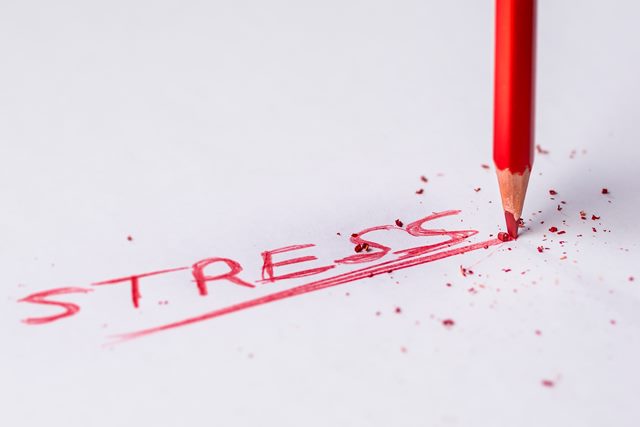Last Updated on May 16, 2023
Stress has become an inevitable part of our modern-day lifestyle, affecting our physical and mental health in ways we may not even realize. From work pressure to personal relationships, stress can creep into every aspect of our lives, making it difficult to stay productive, motivated, and happy.
However, understanding the role of stress in our health and learning practical ways to manage it can help us lead better lives.
In this article, we’ll dive into the science behind stress, its impact on our health, and practical strategies to handle it like a pro. So, buckle up, and let’s explore the fascinating world of stress management!

Understanding the Role of Stress in Health
Stress impacts our physical and mental health. When we are stressed, our bodies respond by releasing hormones that can lead to various physiological changes.
Chronic stress, in particular, has been linked to an increased risk of various health issues. This includes cardiovascular diseases, digestive disorders, weakened immune systems, and mental health issues such as anxiety and depression.
Moreover, stress can adversely affect our behavior, leading to unhealthy coping mechanisms like smoking, drinking, and overeating, further exacerbating health problems. By understanding the role of stress in health, we can take steps to manage it effectively, reducing the negative impacts it has on our bodies and minds.
Stress management techniques like exercise, mindfulness and deep breathing can help reduce the impact of stress on our bodies and minds.
Understanding how to manage stress can help us to live happier, healthier, and more fulfilling lives.
Read: What Preventative Health Care Steps Should You Take?

The Science Behind Stress
We’ve all been stressed at some point in our lives. Some people experience it every day. It is a natural response to various events or situations that challenge us physically, emotionally, or mentally.
Although stress is often associated with negative outcomes, it is essential to note that different types of stress exist.
Eustress is the positive type of stress that arises from situations like getting a promotion. While on the other hand, distress is the negative type of stress that arises from situations such as financial problems or relationship issues. It is important to delve into the science behind stress to understand stress better.
Stress is a physiological and psychological response to a perceived threat or demand. The response involves two systems; the sympathetic nervous system and the hypothalamic-pituitary-adrenal (HPA) axis.
The sympathetic nervous system is the first to be activated when the body experiences stress. It is responsible for the fight or flight response, which prepares the body to either fight or flees the perceived threat.
When the brain perceives a threat or demand, the hypothalamus, a region in the brain, sends signals to the adrenal glands to release adrenaline and noradrenaline. These hormones increase heart rate, blood pressure, and respiration, preparing the body to respond to the perceived threat.
The adrenal glands also release cortisol, which is the primary stress hormone. Cortisol increases glucose availability in the bloodstream, providing the body with the necessary energy to deal with the perceived threat.
Persistent stress response activates the HPA axis. The hypothalamus releases a hormone called corticotropin-releasing hormone (CRH), which signals the pituitary gland to release adrenocorticotropic hormone (ACTH).
ACTH travels to the adrenal glands and signals the release of cortisol. Cortisol helps the body cope with prolonged stress by suppressing non-essential functions like digestion and the reproductive system.
The release of cortisol is a natural stress response, but prolonged stress can cause the body to remain in a constant state of cortisol release, leading to health problems.
Read: Why is Sun Protection Important for Skin and Health?

The Impact of Stress on Health
One of the most significant impacts of stress on health is its effect on the cardiovascular system. Prolonged stress can cause high blood pressure, which increases the risk of heart disease and stroke.
Stress can also lead to the development of atherosclerosis, which is the hardening and narrowing of the arteries. This can further increase the risk of heart disease and stroke.
In addition, stress can affect the digestive system. Prolonged stress can cause stomach ulcers, irritable bowel syndrome, and acid reflux. Stress can also lead to unhealthy eating habits, such as overeating or binge eating, which can cause weight gain and other related health problems.
Furthermore, constantly being stressed can weaken the immune system, making it more vulnerable to infections and diseases. Stress can suppress the immune system by reducing the number of immune cells in the body and decreasing their effectiveness. This can increase the risk of infections and the severity of chronic illnesses like asthma and rheumatoid arthritis.
Read: How to Boost Your Immune System Naturally
Chronic stress can also have negative impacts on mental health. For example, it can cause anxiety, depression, and mood swings. It can also lead to changes in behavior, such as overeating or substance abuse, which can further exacerbate mental health issues.
How to Manage Stress for Better Overall Health
Managing stress effectively can help reduce its impact on the body and promote overall well-being. Here are some strategies to manage stress:
Physical Exercise
Exercise is one of the most effective strategies for managing stress. Physical activity releases endorphins, which are natural mood boosters and can help reduce the levels of stress hormones like cortisol in the body. Exercise can also help promote better sleep, which is essential for managing stress.
Read: How Important Is Sleep for Physical and Mental Regeneration?
Mindfulness Meditation
Mindfulness meditation is a technique that involves paying attention to the present moment without judgment. It can help reduce the levels of stress hormones in the body and improve mood.

Mindfulness meditation can also help individuals become more aware of their thoughts and feelings, allowing them to respond to stress more effectively. Learn more about the health benefits of meditation.
Deep Breathing
Deep breathing involves taking slow, deep breaths from the diaphragm. It can help slow down the heart rate and reduce muscle tension, common physical stress symptoms. Deep breathing can also help individuals feel more relaxed and calm.
Time Management
Managing time effectively can help reduce stress by reducing feelings of overwhelm and increasing feelings of control. Setting realistic goals, prioritizing tasks, and avoiding procrastination can help individuals feel more organized and in control of their lives.
Social Support
Having a support network of friends and family can help reduce stress by providing a sense of belonging and emotional support. Talking to someone about stressors can help individuals process their thoughts and feelings and feel more supported.

Self-Care
Practicing self-care is essential for managing stress. Taking care of oneself through activities like getting enough sleep, eating well, and engaging in hobbies and activities that bring joy can help individuals feel more balanced and less stressed.
Read: The Best Self-Care Routines for Your Mental Health
The Importance of Managing Stress for Better Health and Well-Being
Managing stress is crucial for maintaining good physical and mental health and overall well-being. Prolonged stress can lead to various health problems, as we discussed earlier, including other mental health issues.
Chronic stress can also negatively impact an individual’s quality of life by decreasing productivity, affecting relationships, and causing emotional distress.
On the other hand, managing stress effectively can positively impact the body and mind. It can reduce the levels of stress hormones in the body, improve mood, and promote better sleep. Managing stress can also increase feelings of control and improve an individual’s ability to cope with difficult situations.
Managing stress can also lead to increased feelings of happiness and fulfillment.
However, while some stressors are unavoidable, there are many healthy stress management strategies that individuals can adopt in their daily lives. Here are some additional strategies to consider:
- Connect with Others: Social support can be a powerful tool for managing stress. Spend time with friends and family, join a community group or club, or seek out professional support.
- Practice Gratitude: Gratitude practices, such as journaling or expressing gratitude to others, can help shift your focus away from stress and negative emotions and promote a more positive outlook.
- Set Realistic Goals: Setting achievable and realistic goals can help reduce stress and increase motivation. Break larger goals into smaller, manageable tasks.
Remember, everyone’s stressors and stress management strategies are unique. What works for one person may not work for another. Therefore, it would be better to experiment with different stress management techniques and find what works best for you.
It is also important to recognize when stress levels are becoming unmanageable and seek professional help when needed. A mental health professional can help individuals identify stressors, develop coping strategies, and provide additional support and resources.
Finally, adopting healthy stress management strategies requires commitment and consistency. Make a plan to incorporate these strategies into your daily routine, and hold yourself accountable. Consistency is key to long-term success in managing stress.
Before you go…
Hey, thank you for reading this blog to the end. I hope it was helpful. Let me tell you a little bit about Nicholas Idoko Technologies. We help businesses and companies build an online presence by developing web, mobile, desktop, and blockchain applications.
We also help aspiring software developers and programmers learn the skills they need to have a successful career. Take your first step to becoming a programming boss by joining our Learn To Code academy today!











